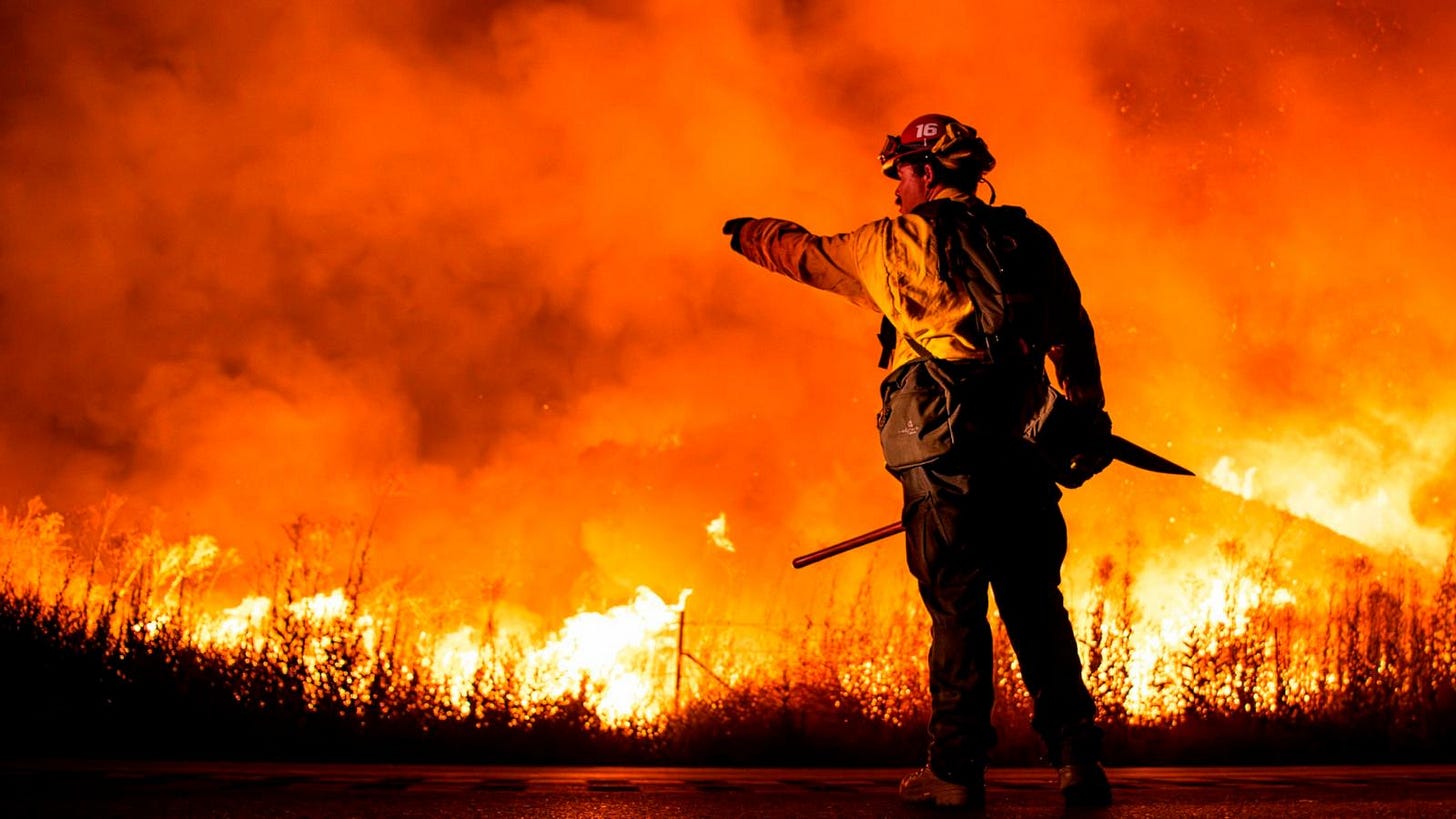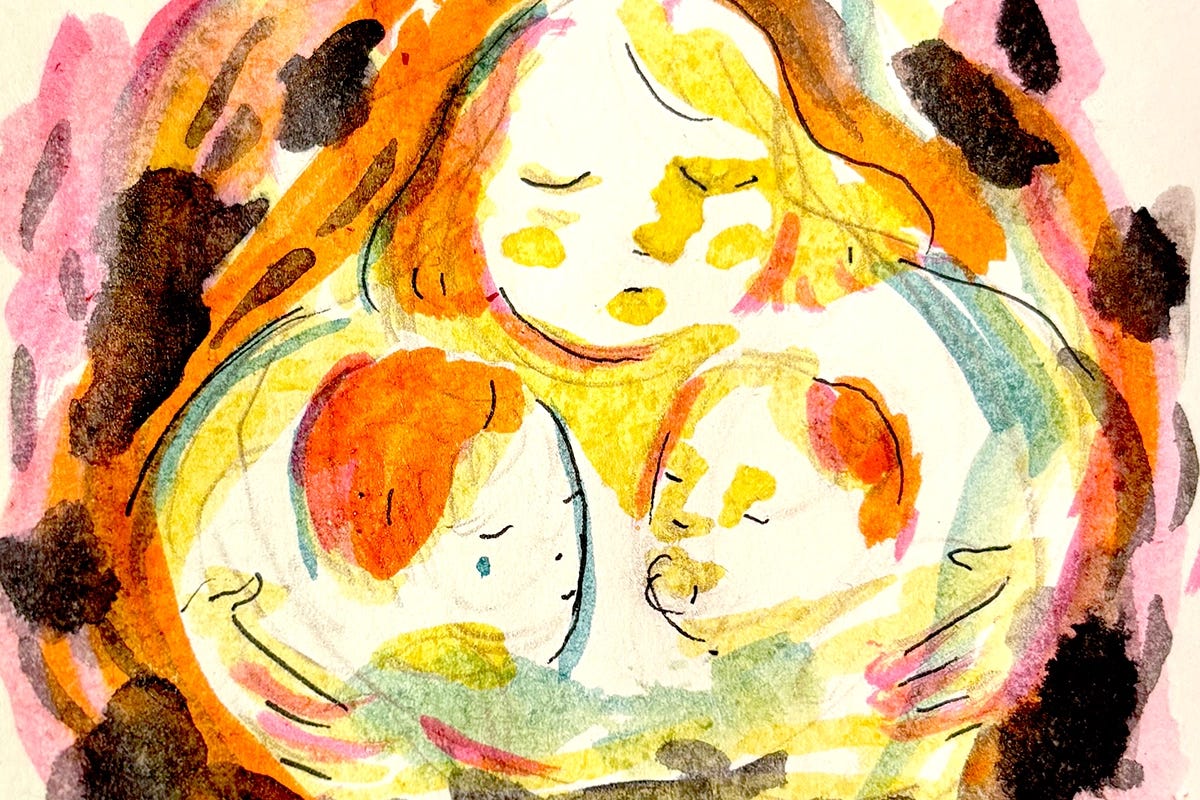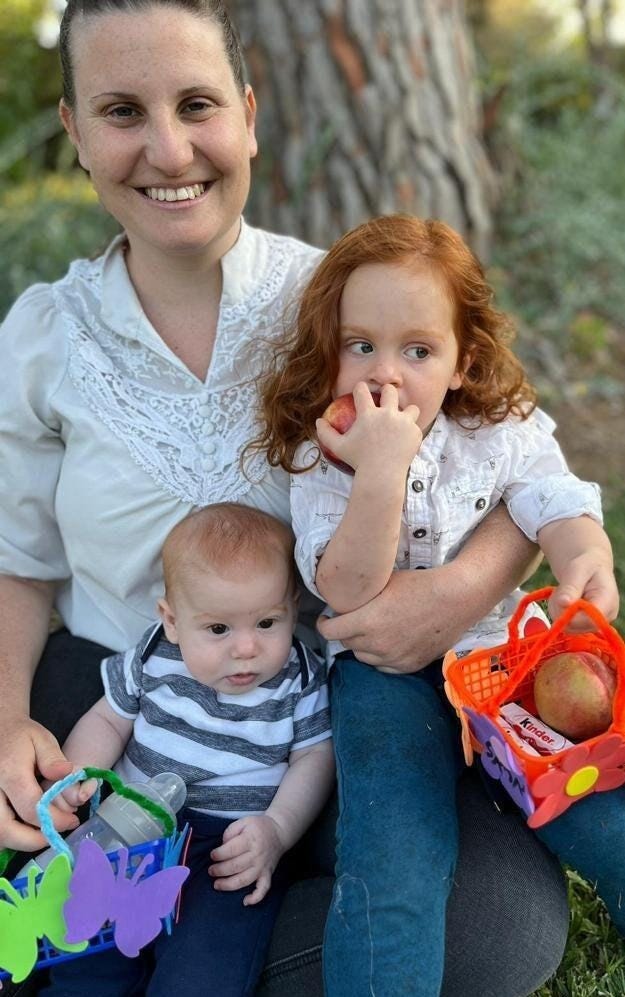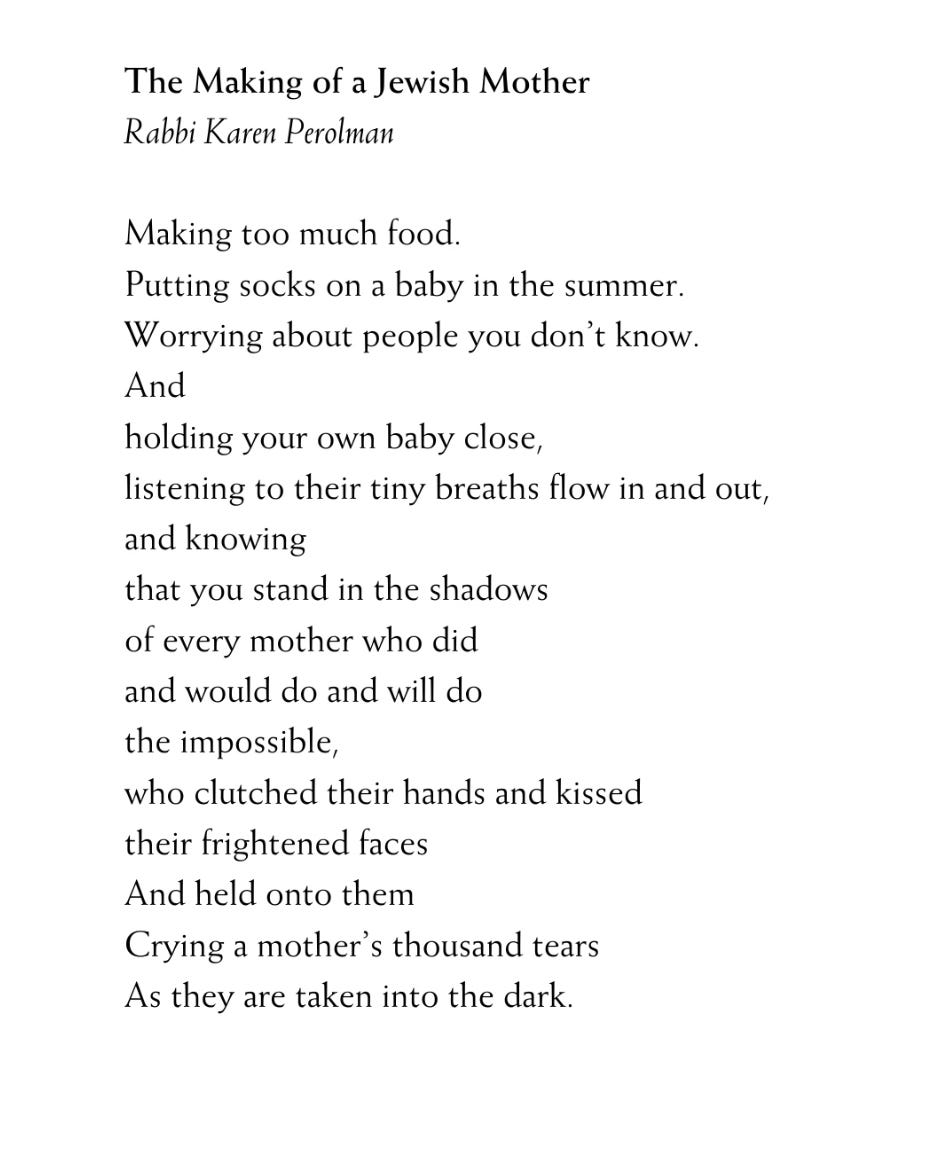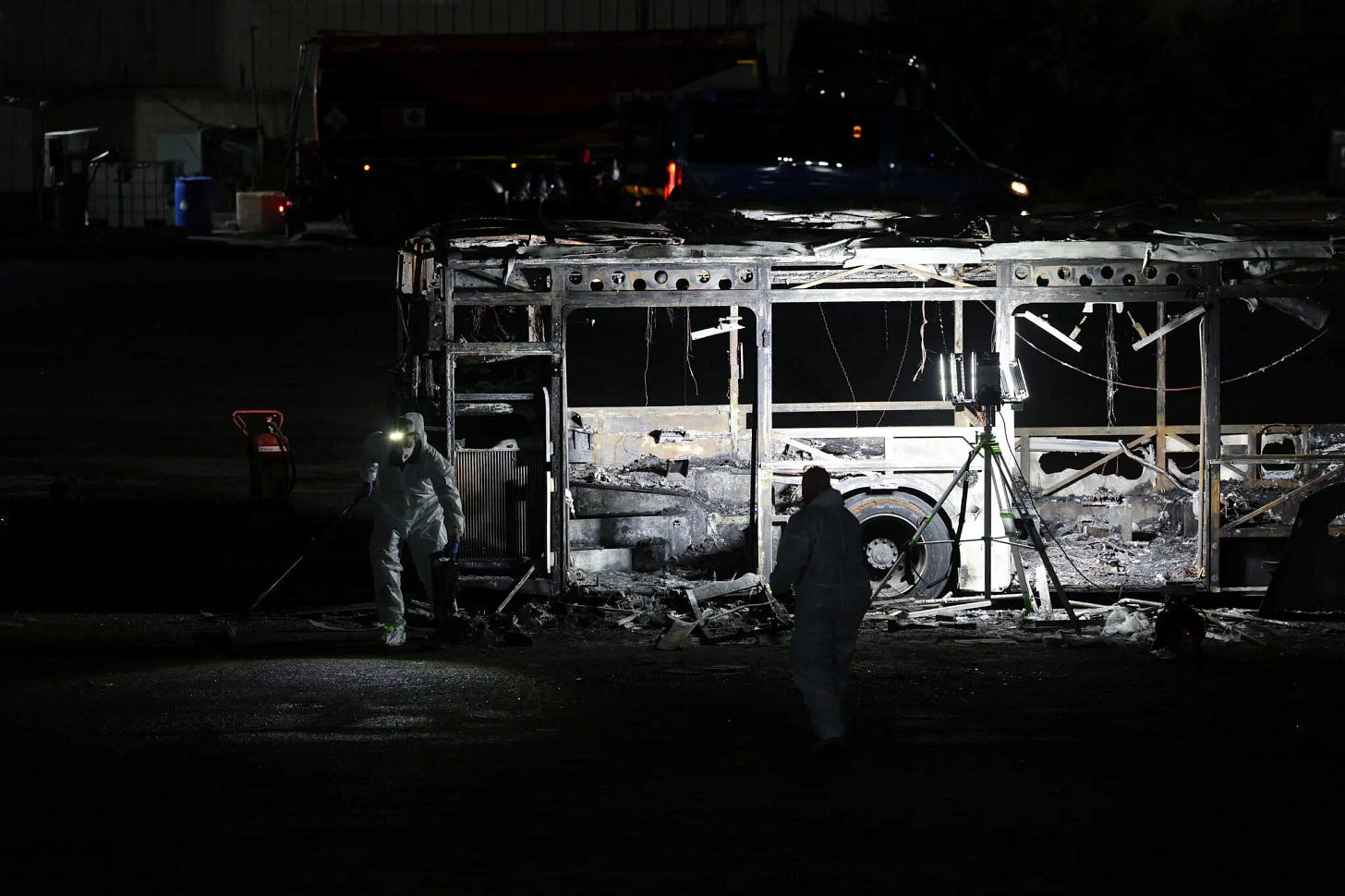In January 2025 while wildfires were destroying tens of thousands of houses and businesses across L.A., I sat at my desk in snowy Minnesota. People were evacuating their homes, leaving all of their valuables and memories behind and I was sipping hot coffee, watching the snow fall.
The world is so wildly huge. Far beyond the scale my brain is able to envision or contextualize. In the course of a day, the average person in a Western city is said to be exposed to as much data as someone in the 15th century would encounter in their entire life.
That’s a lot of information—and tragedy—for our small brains to process.
So while I was safe and cozy in Minnesota, I knew millions of people in California were NOT. They were losing everything. As I scrolled past the devastating (and heroic) stories that centered around the fires, I wondered…what should I be “saying” on social media?
This is a humiliating thought to share with you.
I really wish my brain didn’t work this way. I wish I didn’t care what other people thought about me or that I didn’t even have social media…but it does and I do.
As I saw many friends post mutual aid links and resources for those affected by the wildfires, I wondered: Should I be posting about the fires, too? Even though I don’t live there, and don’t have family in danger, and it has nothing to do with me? It’s still awful. I still care. Maybe something I post could help someone? Or would it just add to the noise? Do I have anything valuable or pertinent to add? Or do I just want other people to know I see their pain and I care about them? Is that valuable or is that virtue signaling?
Virtue signaling is a concept I think about a lot these days. The performance of activism and being perceived as a good person is bizarre and unsettling1.
But if posting spreads awareness, does the intent even matter?
If posting about a tragic event that doesn’t directly affect you but that you still care about is “virtue signaling,” then how are you *supposed* to post about the tragedy? Whether it involves you or not…whether something unjust is happening in your own backyard, to your people, or to communities on the other side of the world…what is “appropriate?” Because really, you can’t win.
Your options for posting during a tragedy are all shitty. You can either:
Stay silent. But people might assume you’re indifferent.
Post something unrelated. Great…now you look tone-deaf.
Post about the tragedy. But how much? Too little and it’s performative. Too much and it seems like you’re making someone else’s tragedy about yourself.
Each option is awful. And by posting about some tragedies but not others, are we showing a preference towards the humanity of some communities and not others? And how the hell would one even post about ALL the tragedies? Shouldn't social media be about connecting socially and not be the news? Don’t we deserve joy and levity and memes, even during a tragedy? Also…does any of this even fucking matter? Is POSTING about tragedies helping anyone? Or are we all just screaming into a collective void?
We know we all exist online in echo chambers—bubbles where the folks digitally surrounding us mirror our own beliefs and values. While our opinions might not be exactly the same, the algorithms that tell us what to watch and who we should follow also makes it hard for us to share with folks beyond our immediate circles. The echo chambers are real, and breaking out of them feels damn near impossible.
Last week, I noticed a sharp divide in my own echo chamber with the horrific news of the Bibas family.
I really didn’t want to write about the Bibas family this week. I had a draft I was excited to work on about rewatching Full House with my daughters. And another piece I’ve been working on about Penguin Pebbling. But then the bodies of Ariel and Kfir Bibas were returned to Israel, the silence on my social media feed shocked me. Did no one hear the news? Did no one care? Did people not know what to say? Were they worried about appearing pro-Israel by expressing sympathy towards this family?
In case you’ve been away from the news, Shiri Bibas and her two small sons—Ariel and Kfir—were kidnapped by Hamas on October 7, 2023. They lived on Kibbutz Nir Oz and were removed from their home by terrorists. As part of the Hamas/Israel ceasefire terms, Hamas was scheduled to return Shiri, Ariel, and Kfir to Israel last week.
The Jewish community had been holding our breath, praying that this sweet, red-headed family would come home alive after +500 days in captivity. The Bibas family had become a symbol of humanity and hope. Maybe there was a chance they’d be reunited with their father. That they’d be able to reintegrate and live loving, full lives despite the trauma that this group of terrorists inflicted on their innocent family.
But no.
We learned last week that not only had they all been murdered…but that the boys’ bodies had been killed due to strangulation—and the body they returned claiming to be Shiri wasn’t hers. The body Hamas returned was not a DNA match for the Bibas family. Because they couldn’t have treated this family of Israelis any more like trash.
I don’t have the time or emotional energy to explain why this sequence of events is so especially devastating in a middle east war filled with millions of tragic, inhumane, devastating stories…but for every Jewish mom I know, it’s impacted us on a cellular level.
To us, Ariel and Kfir are OUR kids. We are Shiri. At night I clutch my babies and smother them with snuggles. Brad thinks I give them too many kisses. I can’t stop though. I sprinkle them across their cheeks and hands like a forcefield.
The inimitable author and writer, Bess Kalb, wrote a piece on her Substack last week which made me feel so seen…
“There is implicit shame of crying for babies who look like our own. It is not because they look like our own. It is because they are our family. I have said it before, but as white as loud and crotchety and culturally saturated as we are, there are not many Jews alive on this earth. We are 0.2% of the global population. Zero point two…I see the Bibas boys and I break. It comes from birthing my own children and holding them on the hospital bed and feeling connected to a matrilineal blood tribe that spans thousands of years back to the first survivors of certain slaughter. A Jewish baby’s life is beating the odds of centuries. An eternal flame in the tuft of red hair. The snuffing out of that light, the tiny coffins were paraded as trophies, the horror of the ghoulish prank in the mother’s coffin, was darkness as haunting and lonely and suffocating and infinite as the far reaches of universe. The sacrilegious taunt desecrating another woman’s corpse.”
My Instagram feed is sharply divided into the Jewish Moms who post orange hearts and poems (like this one by my friend Rabbi Karen Perolman 🧡)…and Everyone Else.
Everyone Else is posting about Elon Musk, budget cuts, layoffs, transphobic laws…important issues…but they are bizarrely quiet about the Bibas family. They had no issue resharing the “All Eyes on Rafah” graphic a few months ago, but I guess their eyes aren’t on Israel. Or the the attempted attacks outside Tel Aviv on Thursday, February 20, which injured no one (thank God) but shut down buses and trains across the country.
I know I was just criticizing virtue signaling, but in a weird way, I’m also yearning for it. Because even performative care is better than silence. Sometimes, signaling virtue is just signaling that you see me. That you see us.
This week, I wish I’d seen more virtue-signaling from my friends on social media. Those who call themselves liberal and consistently post about every other social cause are so quiet about Jewish suffering. Even if it is “virtue signaling” it’s signaling to me and the other Jewish families out there that you give a shit about our safety. Our babies. Our right to exist ANYWHERE.
But then after getting so worked up, I remind myself that someone’s posting or not posting or liking or not liking a social media story is not a true indicator of their heart. Even if it feels that way.
I just wish we’d all examine our biases in how we engage with tragedies. I wish we’d remember that social media doesn’t define real activism. It’s not meaningless, but it’s just a start.
So before you repost the details of another tragedy (or mindlessly scroll past), maybe pause. Ask yourself: Why do I post about some things and not others? Who am I centering in my outrage? Am I afraid of what it looks like to care? Because sometimes, just showing up—just acknowledging someone else’s grief and pain does matter.
I want to phone-a-friend (preferably a historian or sociologist) to ask if it’s a new phenomenon that appeared alongside the rise of social media, or if it’s always been there in some form. Were Puritans in Jamestown side-eyeing pregnant teens to prove their virtue? Probably.


